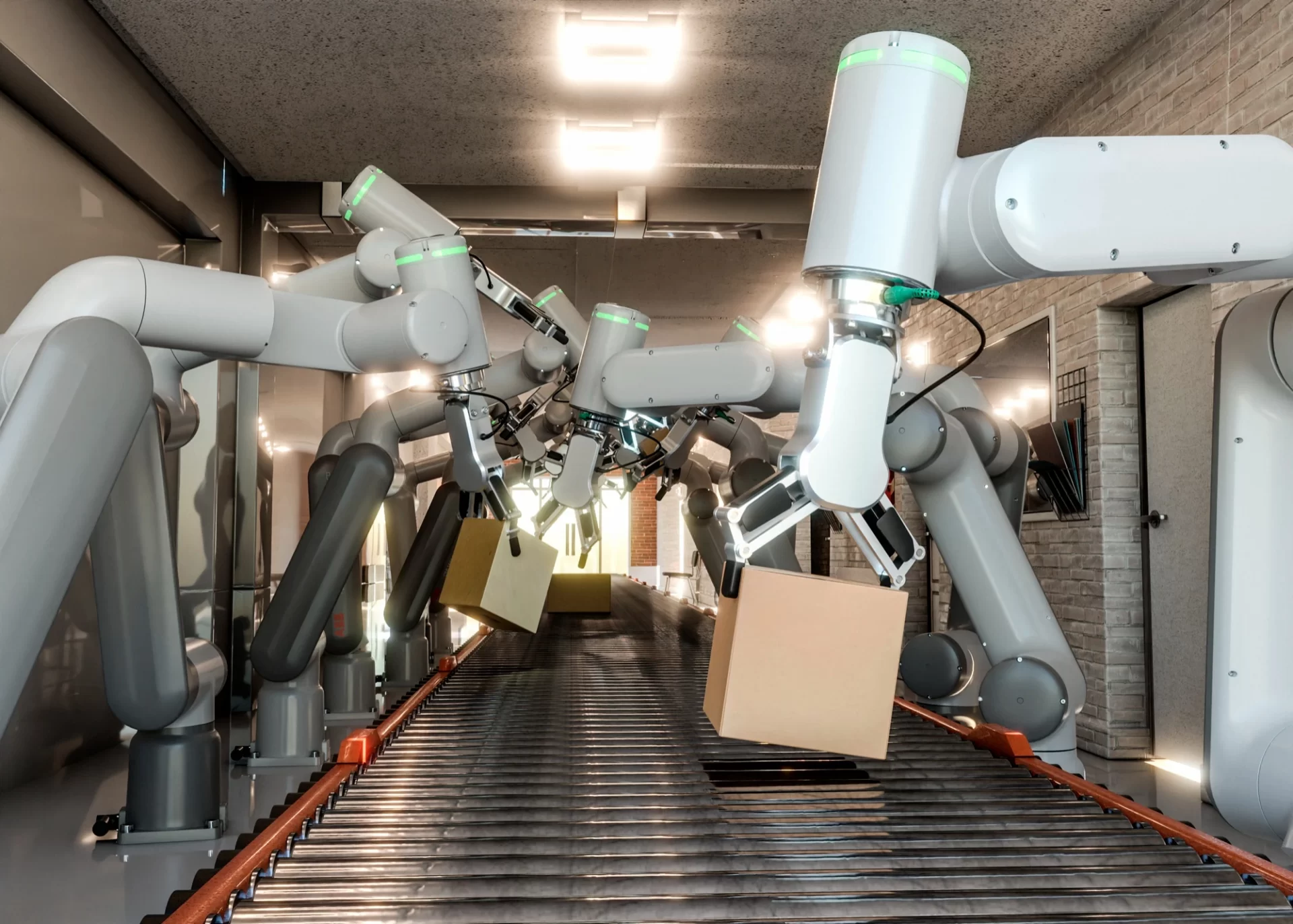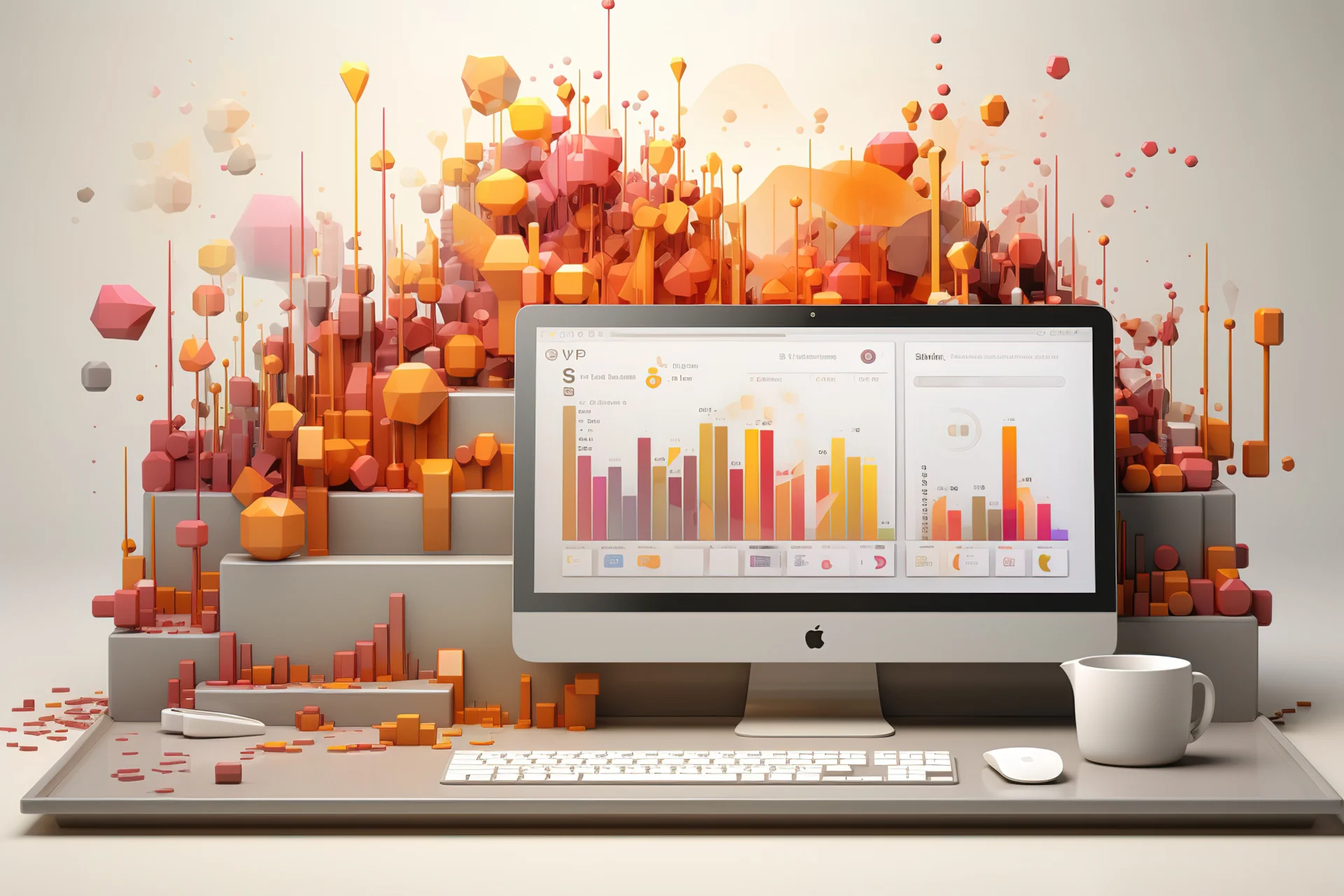Uncover the potential of Artificial Intelligence manufacturing solutions with our in-depth analysis of its applications and benefits, driving innovation and efficiency in the sector.
I. Introduction
A. Defining Artificial Intelligence
Artificial Intelligence (AI) refers to the development of computer systems capable of performing tasks that usually require human intelligence. These tasks include learning, reasoning, problem-solving, understanding natural language, and perception. AI has become an essential tool for various industries, including manufacturing.B. The Evolution of AI in Manufacturing
Manufacturing has evolved significantly in recent years, with AI playing a crucial role in this transformation. As technology advances, the integration of AI in manufacturing has led to the development of smart factories, automated processes, and enhanced decision-making capabilities.C. The Potential of Artificial Intelligence Manufacturing Solutions
AI offers numerous benefits and opportunities for manufacturing solutions, such as increased efficiency, improved quality control, and cost reduction. This comprehensive guide will explore the key technologies, benefits, challenges, and future trends of AI in manufacturing, offering insights for tech enthusiasts and industry professionals alike.II. AI-Based Manufacturing Technologies
A. Machine Learning and Data Analysis
1. Predictive Maintenance
One of the most significant applications of AI in manufacturing is predictive maintenance. Machine learning algorithms can analyze large volumes of data collected from sensors and equipment, allowing for the early detection of potential issues. By identifying signs of wear or malfunction before they become critical, businesses can schedule maintenance more effectively, reduce downtime, and extend equipment lifespan.2. Real-time Data-driven Optimization
AI can also optimize manufacturing processes in real-time by analyzing data from various sources, such as equipment performance, energy consumption, and raw material usage. Machine learning algorithms can identify inefficiencies, suggest improvements, and enable adjustments to maximize productivity and minimize costs.B. Computer Vision
1. Quality Control and Inspection
Computer vision, a subfield of AI, enables machines to perceive, understand, and interpret visual information from the physical world. In manufacturing, computer vision technologies can perform quality control inspections more accurately and efficiently than human workers. By analyzing images and videos, AI-powered systems can detect defects, inconsistencies, and deviations from established standards, ensuring high-quality products and minimizing waste.2. Collaborative Robotics
AI-enabled robots can work alongside human employees, assisting them with complex tasks and improving overall productivity. These collaborative robots, or cobots, can be equipped with computer vision capabilities, allowing them to navigate their environment, recognize objects, and perform tasks with precision and accuracy.C. Natural Language Processing
1. Enhanced Communication and Collaboration
Natural Language Processing (NLP), another subfield of AI, focuses on the interaction between computers and humans through natural language. In manufacturing, NLP can facilitate communication between employees by translating languages, interpreting spoken or written instructions, and automating information exchange. This enhanced communication can lead to better collaboration, streamlined processes, and increased efficiency.2. Automating Documentation Processes
AI-powered NLP technologies can also automate documentation processes in manufacturing by extracting information from various sources, generating reports, and organizing data. By reducing manual tasks and minimizing human error, NLP can save time, improve accuracy, and increase productivity.III. Benefits of AI in Manufacturing Solutions
A. Increased Efficiency and Productivity
One of the main advantages of AI in manufacturing is the potential for increased efficiency and productivity. By automating processes, optimizing workflow, and improving decision-making, AI can significantly boost output and reduce waste.B. Enhanced Quality Control
AI can also improve quality control by detecting defects and inconsistencies in products more accurately than human workers. This enhanced quality assurance ensures that customers receive high-quality products and helps maintain a company’s reputation in the market.C. Improved Decision Making
AI can analyze vast amounts of data, enabling better-informed decisions in manufacturing. By identifying patterns and trends, AI can offer valuable insights for strategic planning, resource allocation, and overall process optimization.D. Cost Reduction
By enhancing efficiency, reducing waste, and automating tasks, AI can help businesses lower their costs and boost their bottom line. Additionally, predictive maintenance can reduce downtime and extend equipment life, further contributing to cost savings.E. Energy and Resource Optimization
AI can analyze data on energy consumption and resource usage, identifying opportunities for optimization and more sustainable practices. This can lead to reduced energy costs and a smaller environmental footprint for manufacturing companies.F. Accelerated Innovation
AI can help companies stay ahead of the competition by driving innovation and facilitating the development of new products and solutions. By automating tasks and analyzing data, AI can free up time and resources for research and development, fostering a culture of continuous improvement.IV. Challenges and Considerations for AI Adoption
A. Data Security and Privacy
Implementing AI in manufacturing requires the collection and analysis of vast amounts of data, raising concerns about data security and privacy. Companies must ensure that they have robust cybersecurity measures in place to protect sensitive information and maintain compliance with data protection regulations.B. Workforce Transformation and Retraining
As AI and automation become more prevalent, the manufacturing workforce will need to adapt and develop new skills. Companies must invest in employee training and education, preparing workers for the changes brought about by AI adoption.C. Ethical Considerations and Bias
AI systems can sometimes exhibit bias or make decisions that raise ethical concerns. To ensure responsible AI adoption, companies must carefully evaluate their AI solutions and commit to transparency, accountability, and ethical decision-making.D. Infrastructure and Integration
Implementing AI in manufacturing requires significant investment in infrastructure and the integration of AI systems with existing processes and technologies. Companies must carefully plan and manage these changes to ensure a smooth transition and maximize the benefits of AI adoption.V. Future Trends and Opportunities
A. The Emergence of Smart Factories
As AI continues to revolutionize manufacturing, we are likely to see the rise of smart factories, with fully integrated AI systems and IoT devices working in harmony to optimize processes and drive innovation.B. Integration of AI with Other Technologies
1. IoT and Big Data
The Internet of Things (IoT) and Big Data are poised to play an increasingly significant role in manufacturing, with AI at the core of these technologies. The combination of AI, IoT, and Big Data can enable data-driven decision-making, real-time optimization, and predictive analytics, transforming the manufacturing landscape.2. Augmented Reality and Virtual Reality
AI can also be integrated with Augmented Reality (AR) and Virtual Reality (VR) technologies to enhance training, maintenance, and collaboration in manufacturing. For example, AR can provide workers with real-time information and guidance on tasks, while VR can simulate manufacturing environments for training purposes.C. Customized Manufacturing Solutions
As AI becomes more advanced, we may see the development of highly customized manufacturing solutions tailored to specific industries, processes, and requirements. This could enable companies to achieve even greater efficiency and productivity gains.D. AI-Driven Supply Chain Management
AI can also revolutionize supply chain management in manufacturing, offering improved forecasting, real-time tracking, and optimized logistics. By leveraging AI, companies can streamline their supply chains and better manage resources, ultimately enhancing their competitiveness.VI. Conclusion
A. The Role of AI in Manufacturing’s Future
From predictive maintenance to smart factories, AI is reshaping the manufacturing industry, offering significant potential for innovation, efficiency, and growth. As technology continues to advance, AI is likely to play an even more prominent role in the future of manufacturing.B. Embracing AI for a Competitive Edge
Companies that embrace AI and invest in the development and integration of AI-powered manufacturing solutions will be well-positioned to succeed in the increasingly competitive global market. By leveraging AI technologies, businesses can unlock new opportunities and drive growth in the years ahead.To learn more about AI-driven solutions and how they can benefit your business, visit the application development agency website.
Frequently Asked Questions
1. What is the role of AI in manufacturing?
AI plays a crucial role in transforming the manufacturing industry by optimizing processes, enhancing decision-making, improving quality control, and increasing efficiency and productivity. It also helps to reduce costs and drive innovation in manufacturing operations.2. How can AI-powered manufacturing solutions benefit businesses?
AI-driven manufacturing solutions can help businesses in various ways, such as increasing efficiency and productivity, enhancing quality control, improving decision-making, reducing costs, optimizing energy and resources, and fostering innovation.3. What are the main AI-based technologies used in manufacturing?
The primary AI-based technologies used in manufacturing include machine learning for data analysis and predictive maintenance, computer vision for quality control and inspection, and natural language processing for enhanced communication and documentation automation.4. What challenges do companies face when adopting AI in manufacturing?
Companies may face several challenges when adopting AI in manufacturing, such as data security and privacy concerns, workforce transformation and retraining needs, ethical considerations and bias, and infrastructure and integration requirements.5. What are some future trends and opportunities in AI-driven manufacturing?
Future trends and opportunities in AI-driven manufacturing include the emergence of smart factories, integration of AI with other technologies like IoT and Big Data, customized manufacturing solutions, and AI-driven supply chain management.References
- AI in production: A game-changer for manufacturers with heavy assets – McKinsey & Company
- Demystifying artificial intelligence in the enterprise – Deloitte Insights
- Industry 4.0: Building the digital enterprise – PwC

